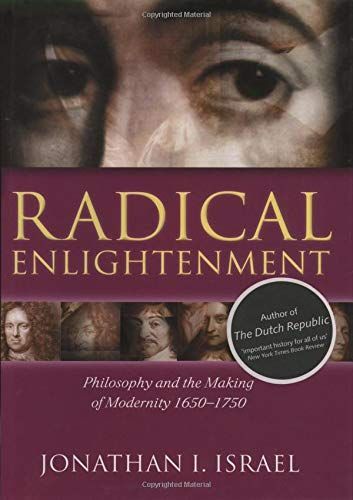
Radical Enlightenment Philosophy and the Making of Modernity, 1650-1750
Arguably the most decisive shift in the history of ideas in modern times was the complete demolition during the late seventeenth and eighteenth centuries - in the wake of the Scientific Revolution - of traditional structures of authority, scientific thought, and belief by the new philosophyand the philosophes, culminating in Voltaire, Diderot, and Rousseau. In this revolutionary process which effectively overthrew all justicfication for monarchy, aristocracy, and ecclesiastical power, as well as man's dominance over woman, theological dominance of education, and slavery, substitutingthe modern principles of equality, democracy, and universality, the Radical Enlightenment played a crucially important part. Despite the present day interest in the revolutions of the late eighteenth century, the origins and rise of the Radical Enlightenment have been astonishingly little studieddoubtless largely because of its very wide international sweep and the obvious difficulty of fitting in into the restrictive conventions of 'national history' which until recently tended to dominate all historiography. The greatest obstacle to the Radical Enlightenment finding its proper place inmodern historical writing is simply that it was not French, British, German, Italian, Jewish or Dutch, but all of these at the same time. In this novel interpretation of the Radical Enlightenment down to La Mettie and Diderot, two of its key exponents, particular stress is placed on the pivotal roleof Spinoza and the widespread underground international philosophical movement known before 1750 as Spinozism.